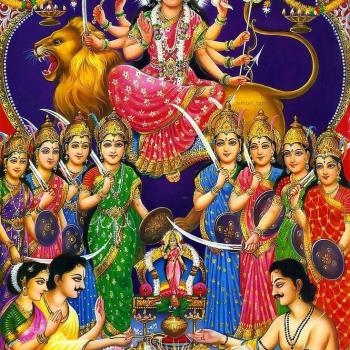Lectionary Reflections
Isaiah 60:1-6
January 4, 2015
Many of the origins of general Christian ideas, regular Christian celebrations, and not a few Christian theological doctrines have been lost to modern Christians due to the almost complete ignorance of the Hebrew Bible. This terrible loss (full confession: I was for many years a teacher of the Hebrew Bible) has manifested itself in ways too numerous to count in one brief article; I have, over the nearly five years of this column, attempted to point to those losses in ways subtle and unsubtle. The reality of this loss is easy to prove. Every time I go to a local church to speak of the Hebrew Bible (I have been in over 1000 churches in my ministry of teaching), what I have to say is invariably new and unknown by those who listen. "Is that really in the Old Testament?" they say. "Is the God of the Old Testament actually characterized by grace, not anger and war?" they say. And I say, "Yes," in as many ways as I can think of.
Today is Epiphany Sunday, the day we may at last sing "We Three Kings of Orient Are," though, God knows, we have heard it in mall and elevator for nearly two months in as many guises as popular musicians can conjure. We celebrate this day Jesus' coming out party; today much more of the world will now recognize that the babe of Bethlehem is no ordinary child, though he certainly looks like one, "mewling and puking in his mother's milk," as old earthy Luther had it. But the fact that these three wise guys show up from the East, the long-hallowed place of wisdom and mystery and theological surprise (see the east wind at the Sea of Reeds in Exodus and the east wind that harrows nasty old Jonah, among other examples), announces that the whole world needs to reckon with this particular child. And so it has proved over the last two millennia.
But just how was the story contrived, this visit of the "kings," a word not found in Matthew's gospel, the only place where the story occurs in the New Testament? In the Gospel, we hear of "wise men" (Greek magi, whence our English "magicians"). The only king in the story is the foul Herod who upon hearing of the birth of a child who might be some sort of ruler, demands to know where the long-expected Messiah of the Jews was to be born. His own counselors quote to him an obscure passage from the 8th-century prophet, Micah, that says "Bethlehem of Judah" is in fact the place of Messiah's birth. Whereupon the evil king invites the Magi to find the brat (oh, I mean "child") and bring news to Herod so that he, too, with the Magi, might pay homage to him. Of course, what the conniving monarch has in mind is a kingly murder; rulers like Herod can brook no rivals.
So the Magi go to Bethlehem, led there by an inordinately bright star — the Magi appear to be primarily astrologers, interpreters of the movement of stars — and find the child's humble home; Matthew calls the place a "house," but all manner of speculation has led readers to "stables" and "cow barns" and "caves." The birthplace, enshrined in the city of Bethlehem today, is rather more like a cave, found below the floor of the more modern Church of the Nativity. No need to consult NASA about this special star; it was bright and it moved strangely, as such things do in special stories.
That's about it for Matthew, save the Magi have three gifts with them, the famous gold, frankincense, and myrrh. Because the story provides three gifts, it soon became dogma that there were three Magi, though many very early pictures of this scene show as many as seven. And much later they get names, too, Caspar, Melchior, and Balthasar, the latter of whom becomes a man of color in later depictions.
In reality, the entire scene is a retelling and reimagining of the scene from Isaiah 60. As I have said often enough in these columns, the dating of any Isaianic material after chapter 55 is only a guess. The time is certainly after 539 B.C.E., the year when many of the Babylonian captives are allowed to return to Jerusalem by the edict of the great Persian king, Cyrus, who earlier in Isaiah 45 is called YHWH's Messiah (!), but exactly when is impossible to demonstrate. Let's say sometime late in the 6th or early in the 5th centuries, some writer, influenced by the earlier composition of the several Isaianic authors, wrote this hopeful chapter with an eye on the full return of all the dispersed Israelites to their homeland. The "darkness" covering the earth and the "thick darkness" enveloping the people, says this Isaiah, will be pierced by the "glory of YHWH," that will "arise upon you" (Is. 60:1-2). Then "nations will come to your light, and kings to the brightness of your dawn" (Is. 60:3).
What this Isaiah has in mind is a day when YHWH's glorious light will illuminate the whole world, and even the powerful and mighty, all the nations and their kings, will flock toward Jerusalem. And they will be accompanied by all those former Israelites who have been trapped in exile from Babylon to Egypt, both sons and daughters (Is. 60:4). Not only shall all the peoples of the earth, small and great, assemble in a renewed Jerusalem, but vast wealth will flow there, too. "The abundance of the sea" and "the wealth of the nations" shall appear, not to mention fine camels, those magical ships of the desert, that make long-distance commerce feasible, from Midian and Ephah and Sheba, that is from the east and the north and the south.




